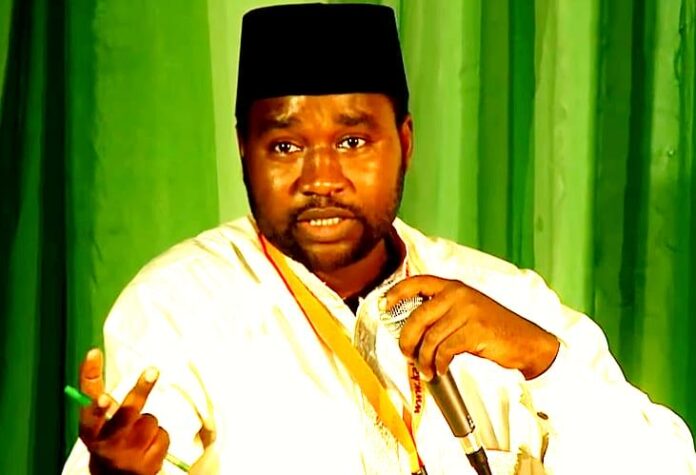In a landmark development that has sparked both relief and concern, Mubarak Bala, the Nigerian humanist imprisoned for his outspoken atheism, has been released from jail after spending four harrowing years behind bars on charges of blasphemy.
Bala, 36, was sentenced in 2022 to 24 years in prison by a Kano State High Court after he pleaded guilty to 18 charges related to blasphemy and incitement, following his controversial social media posts. These posts, which were deemed offensive to religious sensibilities, led to Bala’s arrest in 2020. He was accused of making disparaging remarks about the Islamic prophet Muhammad, a charge that his defenders say was politically motivated.
Despite his release, Bala has openly expressed his fears for his safety, acknowledging that while his physical freedom has been restored, the emotional and social toll of his ordeal is far from over. “I’m free, yes, but the threat to my life remains. The concern about my safety is always there,” he said in an interview following his release.
Bala’s case has drawn international attention, with human rights organizations across the world condemning the use of blasphemy laws as a violation of freedom of speech and belief. “We are delighted Mubarak Bala is free, but he should never have faced imprisonment in the first place,” said Jack Rivington, a spokesperson for the National Secular Society (NSS). “Criticizing religion should never be a crime, and we call for the abolition of all blasphemy laws everywhere.”
Bala’s legal team revealed that the humanist was held for over a year without charge, facing unimaginable conditions during his time in prison. For 462 days, Bala was kept in detention without access to legal representation, and was denied medical care. At one point, the Nigerian High Court in Abuja ruled that Bala should be released immediately, but authorities in Kano state ignored the ruling, continuing his unlawful detention.
Reflecting on his time in Kano prison, Bala remarked, “In Kano, I never thought I would get out alive. The conditions were so harsh, and the isolation was overwhelming. But I survived, and I’m out now.” His release comes after a campaign spearheaded by organizations such as Humanists International and NSS, who have advocated for his freedom since his detention began.
The case of Mubarak Bala highlights the ongoing issue of blasphemy laws in Nigeria, where such laws can result in severe penalties, including lengthy prison sentences and, in some cases, even the death penalty. Bala’s conviction was based on social media posts, a medium that has increasingly become a battleground for freedom of expression in the digital age.
The issue of blasphemy laws is not limited to Nigeria. A report by Humanists International reveals that at least 95 countries, including Nigeria, have some form of blasphemy law, with 12 of those countries still holding on to the extreme measure of capital punishment for blasphemy or apostasy. These laws are often used as tools of political control, silencing dissent and stifling free speech.
In Bala’s case, his imprisonment was a stark reminder of the dangers faced by atheists, humanists, and other non-religious individuals in a society where religious beliefs are deeply ingrained. During his incarceration, Bala endured not only the harsh physical conditions of the prison but also the psychological pressure of being coerced into participating in religious practices against his will.
Despite the physical and mental toll, Bala’s commitment to atheism and humanist principles has remained unwavering. He has continued to speak out against religious intolerance, even as he faces significant personal threats. “My freedom is not just for me,” he said. “It is for everyone who believes in the right to live free from fear of persecution, whether they believe in a god or not.”
His call for understanding between religious and non-religious individuals is timely, as Nigeria continues to struggle with religious tensions. “Religious adherents must understand that not everyone shares their beliefs. Mutual respect and understanding are key to living in harmony in a diverse society like Nigeria,” Bala urged.
The Nigerian government, under President Bola Tinubu’s leadership, has yet to respond directly to Bala’s release. However, human rights advocates are hoping that this development will set a precedent for future cases involving freedom of expression in Nigeria.
Bala’s release is seen as a victory for human rights advocates, but it also serves as a reminder of the work still needed to ensure that Nigeria upholds the rights of its citizens to express their beliefs, or lack thereof, without fear of retribution. Blasphemy laws, according to activists, are an affront to fundamental human rights, particularly the freedoms of expression and religion.
For now, Mubarak Bala is free, but the ongoing threat to his safety and the broader fight for freedom of expression in Nigeria remain unresolved. His case, and the many others like it, underscore the urgent need for reform in Nigeria’s legal framework concerning freedom of speech and belief.
“We have to keep pushing for a society where freedom of expression is respected, where the government and the people are not afraid to speak their truth without fear of persecution,” Bala said, his voice firm with conviction despite the uncertainty of what lies ahead.

